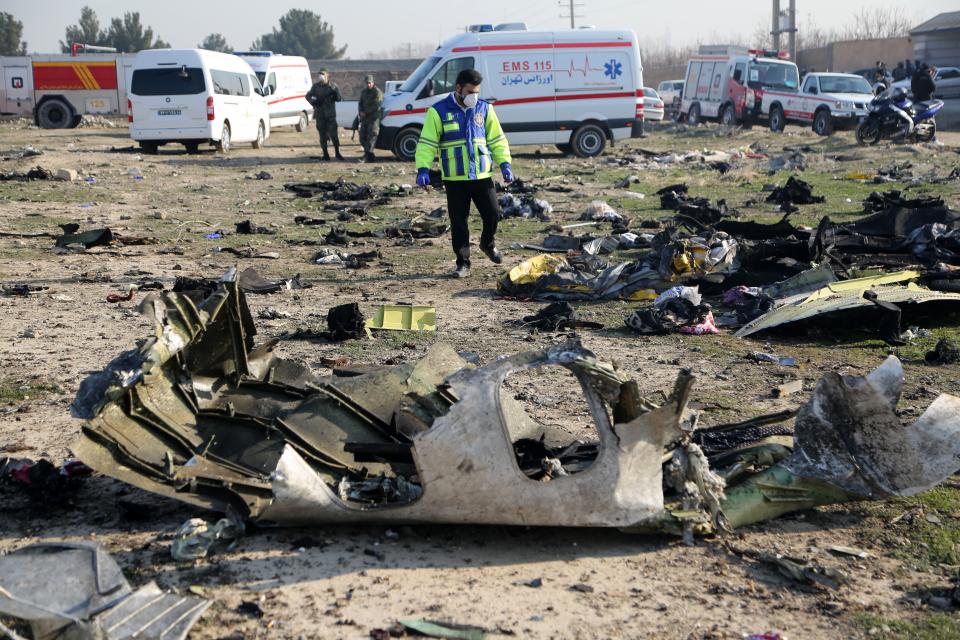Airline stocks drop as problems mount for Boeing and oil rises

Stocks in airlines and aerospace companies sold off on Wednesday morning, as another Boeing (BA) aircraft crashed, the plane manufacturer made concessions on its grounded 737 Max jet, and oil prices climbed.
A Boeing-737 plane with 176 people on board crashed in Tehran early on Wednesday morning. The plane was operated by a Ukrainian carrier and the Ukrainian embassy in Tehran said the crash was caused by an engine failure, according to the BBC. There were no survivors.
Separately on Tuesday, Boeing said it would bow to pressure and recommend pilots training to fly its 737-Max jets do so in a flight simulator. The manufacturer had resisted calls for simulator training as it would likely delay the roll-out of its new jet. The 737 Max has been grounded globally since March 2019, after two crashes that killed hundreds of passengers.
Elsewhere, rising tensions in the Middle East pushed oil prices higher, after Iran fired missiles at US bases in Iraq in retaliation for the killing of general Qasem Soleimani last week.
The flurry of bad news hit stocks in airlines, which depend on oil to fly, and aerospace engineers, many of which do large amounts of business with Boeing. Michael Hewson, chief market analyst at CMC Markets, said it was “difficult to say which is hitting the sector hardest” given the flood of bad news.
Shares in Ryanair (RYA.L) fell 1%, shares in British Airways-owner IAG (IAG.L) dropped 1.3%, and Norwegian Air (NAS.OL)’s stock fell 0.7%.

Engineering group Senior (SNR.L) dropped 0.7% in London. The company has previously warned that Boeing’s 737 Max issues would hit margins.
Rolls-Royce (RR.L), which builds engines for Boeing, was down 0.8%. Melrose Industries (MRO.L), which owns aerospace parts maker GKN, declined by 1.7%. In Paris, Safran (SAF.PA) lost 1%. The company makes landing gear and other components used in the 737 Max. In Frankfurt, MTU Aero Engines (MTX.F) lost 0.8%.
Hewson told Yahoo Finance UK Boeing’s climbdown on the flight simulator was potentially the biggest blow to suppliers as “there’s not an infinite number of simulators so that will mean it’ll take a hell of a lot longer to get them back in the air, assuming it is cleared to fly again at all.”
Authorities continue to investigate problems with the 737 Max. The incident has so far cost Boeing at least $9.2bn (£7.1bn).
Russ Mould, investment director at stockbroker AJ Bell, said the Iran crash “comes at a time when Boeing is already on the back foot thanks to the disasters associated with the 737 Max.”
“This is a different, if I believe related, aircraft but it could put extra pressure on Boeing and potentially its supply chain, depending upon the findings of the investigation of the causes of the tragedy,” Mould told Yahoo Finance UK.

 Yahoo Finance
Yahoo Finance 